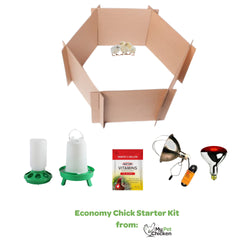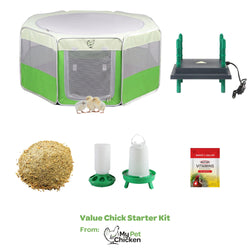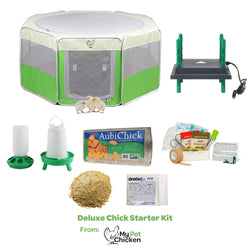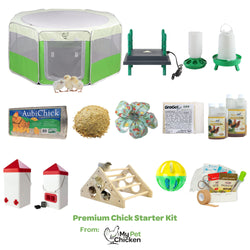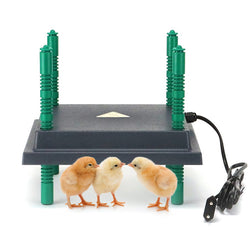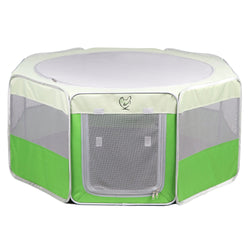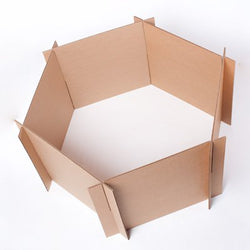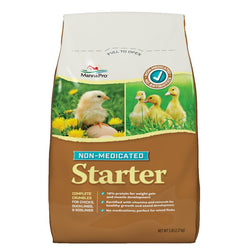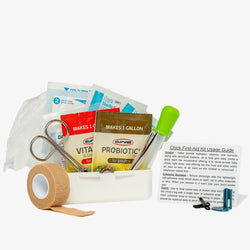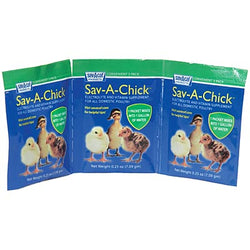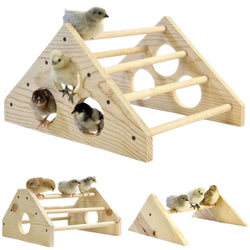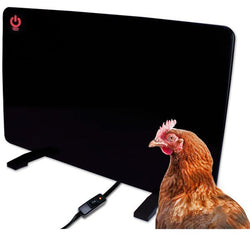Should I be concerned about lead in the environment when I keep chickens?
Back to blog
It's not a common problem, but it is an area of concern. Common sense will tell you not to keep your chickens around peeling or flaking paint, lead based or not. But while you can probably identify if you have paint chips falling into an area your chickens frequent, you may not be aware of any contamination that is not visual--- and that's the danger. For example, if you live in an area of old homes that may have used (once common) lead-based paint on siding, trim, barns or other outbuildings, the lead from old paint chips may have turned to powder, and simply mixing with the topsoil in your area. The other major source of contamination is from car exhaust, so if you live in a very urban area or an area close to busy streets or highways, it's possible to find dangerously elevated lead levels in your soil.
This can be an issue, even if you don't have chickens. Producing leafy vegetables and root vegetables in your garden can be especially problematic in those conditions. If you keep chickens, though, you have additional concerns. Studies have shown that chickens exposed to high environmental lead levels will have increased concentration in their own blood and body tissues, including their ovaries. When your chickens have high levels of lead in their bodies, this is communicated through their eggs to you.

We also know that the lead is particularly concentrated in the yolk. This is just not a good recipe for healthy living!
If you're looking for a good paint to use on your coop or nearby areas, modern paints and sealants free from lead are generally considered safe when dry (so long as they're not chipping). But if you're especially concerned, you might consider old-fashioned milk paint:
Milk Paint
Milk paint is made with natural ingredients and pigments, and is environmentally safe and non-toxic.
On the other hand, if you think your area is already at risk for lead in the soil--or if you just want to make sure it isn't!--you may want to invest in a soil testing kit.
If you do find elevated levels of lead in your soil, you'll need professional advice to remove it for your safety, and the safety of your family and your animals.
This can be an issue, even if you don't have chickens. Producing leafy vegetables and root vegetables in your garden can be especially problematic in those conditions. If you keep chickens, though, you have additional concerns. Studies have shown that chickens exposed to high environmental lead levels will have increased concentration in their own blood and body tissues, including their ovaries. When your chickens have high levels of lead in their bodies, this is communicated through their eggs to you.

We also know that the lead is particularly concentrated in the yolk. This is just not a good recipe for healthy living!
If you're looking for a good paint to use on your coop or nearby areas, modern paints and sealants free from lead are generally considered safe when dry (so long as they're not chipping). But if you're especially concerned, you might consider old-fashioned milk paint:
Milk Paint
Milk paint is made with natural ingredients and pigments, and is environmentally safe and non-toxic.
On the other hand, if you think your area is already at risk for lead in the soil--or if you just want to make sure it isn't!--you may want to invest in a soil testing kit.
If you do find elevated levels of lead in your soil, you'll need professional advice to remove it for your safety, and the safety of your family and your animals.
